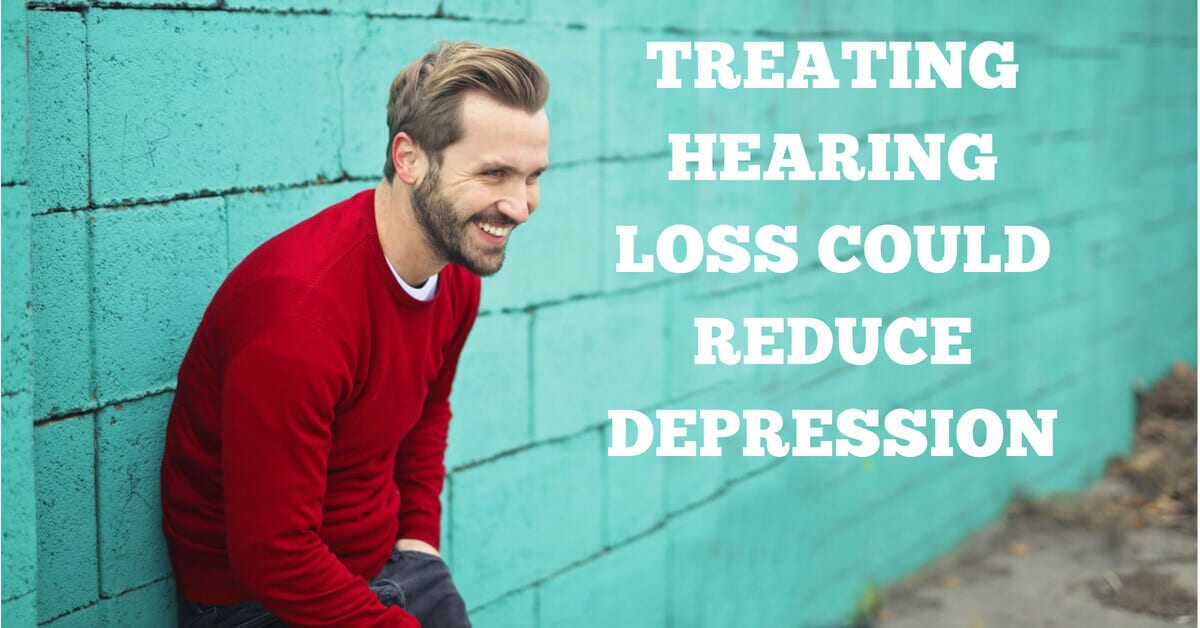
Living with untreated hearing loss affects far more than just your ability to communicate with loved ones, enjoy friendships, and participate in your family life. Hearing loss impacts your social life, your work life, and your relationships, but even more than that, those with hearing loss are more likely to face social isolation, feel loneliness or hopelessness, and are also at a much higher risk of developing depression.
Communicating with Hearing Loss
If you have hearing loss, you know communicating can be a real struggle. You used to share so many special moments with your loved ones, but not communication has been reduced to yelling matches that just leave everyone frustrated and upset. You spend your time straining to hear, but still don’t understand half of what’s being said. You ask your loved ones to repeat themselves, but you can only ask so many times before giving up in despair. You smile and nod, and hope that that was the appropriate response, but everyone knows you really don’t have a clue what’s going on. Unable to communicate effectively, your relationships suffer, and you’re not as close with your loved ones as you once were. Especially among seniors, hearing loss can impact everyday life, cause feelings of loneliness, dependence, and isolation.
Social Isolation
Your loved ones always try to communicate with you, but with friends it can be a little different. You used to love meeting your friends for Saturday morning coffee, but lately you’ve stopped going every week. With all the coffee shop clatter, and the banter being thrown around the table, you can’t seem to catch more than the odd word here and there, follow the fast-paced conversations, or ever laugh at the right time.
Staying home may seem like a good idea at the time, since you don’t have to face the embarrassment of asking your friends to repeat themselves, or risk answering inappropriately when you just can’t hear what’s going on. After a while though, you’ll start to experience social isolation, as your relationships suffer and your network of connections shrinks. James Firman, president of the National Council on Aging, says, “It is not surprising to me that they would be more likely to be depressed. People with hearing loss, especially those who don’t use hearing aids, find it more difficult to communicate with other people, whether in family situations, social gatherings or at work.”
Hearing Loss and Depression
Major depressive disorder affects 14.8 million Americans every year. The average age of onset is 32, so if you’ve been thinking only seniors will face hearing loss and depression, think again. Symptoms of depression include a lack of energy, fatigue, loss of appetite or overeating, and an irritable mood. Those with depression often feel withdrawn and discouraged and have a sense of worthlessness or hopelessness that interferes with their ability to function on a day to day basis. Hearing loss is a risk factor for depression, since hearing loss affects communication and social support, and often leaves people feeling isolated and hopeless.
Treating Hearing Loss Could Reduce Depression
Living with untreated hearing loss lowers your quality of life, harming relationships, and making communication an endless struggle. For anyone who’s facing isolation or loneliness, treating hearing loss can restore relationships, improve communication, and bring joy to people’s lives. Treating hearing loss could be the key to reducing feelings of isolation and loneliness, and can help you live a happy life, free from depression.
Booking a Hearing Test
Do you struggle with depression? Perhaps the best thing you can do for your mental health is to book a hearing test. Treating hearing loss is about more than just hearing the sounds you’ve been missing, sharing moments with your loved ones, communicating easily, and following any and all conversations, regardless of background noise. Treating hearing loss could be the key in treating depression and getting back to a place of great mental health.
If you have hearing loss, visit Pacific Northwest Audiology for a hearing assessment. A pair of quality hearing devices could change your life, so don’t wait for your hearing loss to take anything more away from you. Call us today and see what a hearing aid can do for you.
